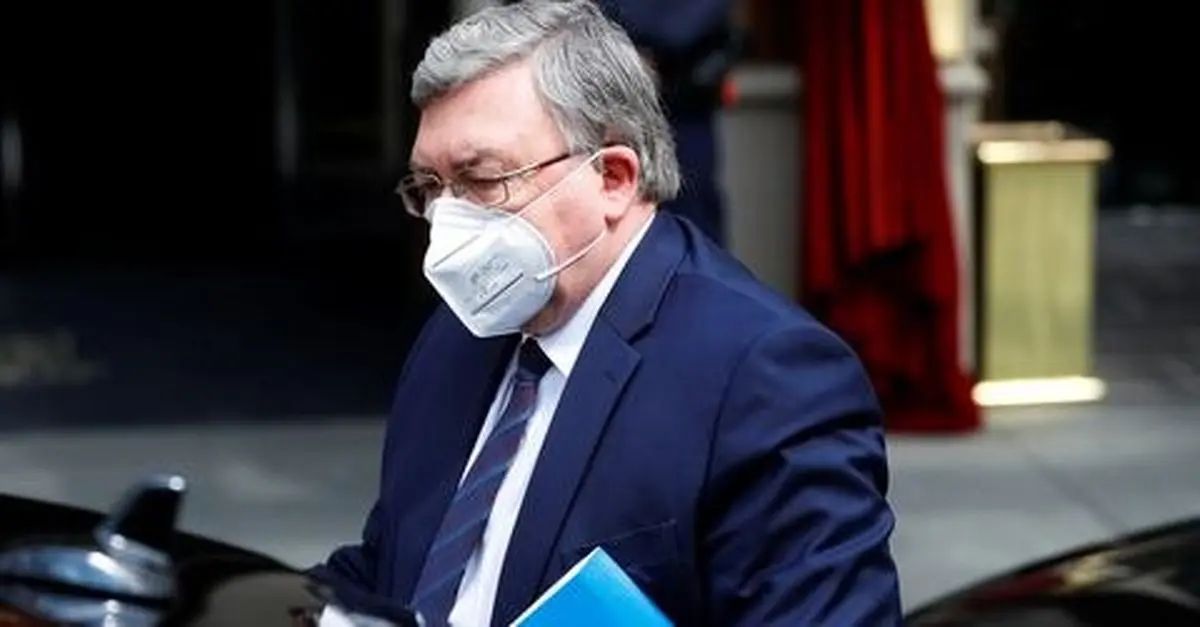Iran got much more than it could expect in Vienna talks: Russian negotiator

Russia’s top representative in the Vienna talks has underlined that the Islamic Republic has succeeded in getting much more than what was expected in the first place to secure Iranians’ rights for nuclear energy as well as removal of sanctions.
Russia's permanent representative to international organizations in Vienna Mikhail Ulyanov said on Saturday that he is absolutely sincere “Iran got much more than it could expect.”
“Judging by circumstances of course there are wishful thinking to get everything,” he said, adding, “Realistically speaking, Iran got more than frankly I expected, others expected.”
Representatives from Iran, the European Union and the P4+1 group (Britain, France, Russia, China plus Germany) hold the eighth round of the Joint Commission meetings of the Joint Comprehensive Plan of Action (JCPOA) in Vienna, Austria to revie the 2015 nuclear deal and lift anti-Iran sanctions.
The Russian diplomat also highlighted the significant efforts made by the Iranian negotiating team to secure Iran’s rights, saying that “Iranian colleagues are fighting for Iranian national interests like lions” and that “they fight for every comma, every word.”
According to the Russian envoy, Iranian top nuclear negotiator Ali Bagheri Kani and his team are “very efficient diplomats.”
In an exclusive interview with IRNA, he also referred to “a partial pause in the negotiations” in Vienna, noting that “E3 colleagues decided as far as now to leave Vienna for a short period of time. Apparently, they don’t see any place at negotiations for them at this late stage. They believe that they have done their job and their presence here is not necessary while others Iran, Russia, China, US are trying to finalize deliberations on issues of interest for them.”
As to speculations on conclusion of the Vienna talks, Ulyanov said, “Formally it will be a ministerial meeting of the Joint Commission if some ministers come here, but it is obvious that not all negotiating countries can be represented at ministerial level for various reasons.”
He also noted that “negotiations can continue but in narrow format in various configurations, we need to settle the remaining problems and many of them lie in the field of bilateral relations not multilateral.”
Dismissing some reports on alliance against the Iranian delegation, he said, “There was no united front against Iran. At least Russia had to be counted out as well as China.”
“All of us are in one boat, we have common goal and we are counterparts, which must cooperate closely,” he emphasized.
The Russian official criticized social platforms for creating and disseminating rumors, saying that “To my surprise, I find many speculations in Iranian mass media and social networks, claiming that Russia and me personally are extremely hostile to Iran and to the nuclear deal.”
“It is nonsense and even insulting because it is not fair,” he said, arguing, “Russia and Iran are neighbors. Iran is not an alien for us. It is a neighbor with whom we want to develop an active trade and economic relations.”
“On international arena in multilateral form Russia and Iran are natural allies on a big number of different issues,” he stated.
Ulyanov also slammed the United States for pursuing sanction policy, saying, “We hate unilateral extra-territorial sanctions as a matter of fact and of course we wanted these sanctions to be lifted from Iran.
Iran was “punished by [former US president] Donald Trump for full compliance with JCPOA, absolute nonsense,” he added.
While, “we believe that JCPOA contributes a lot to strengthen global non-proliferation, he went on to say.
Asked about current situation in Ukraine, he said, “Western colleagues are trying to play games with nuclear security for pure political purposes.”
“Russia is a neighbor of Ukraine and if something negative happens there, Russia will suffer like Ukraine,” he argued.
In response to Ukraine-related sanctions on Russia, he warned, “We will sanction Western countries, certain segments of their economy.”
END
